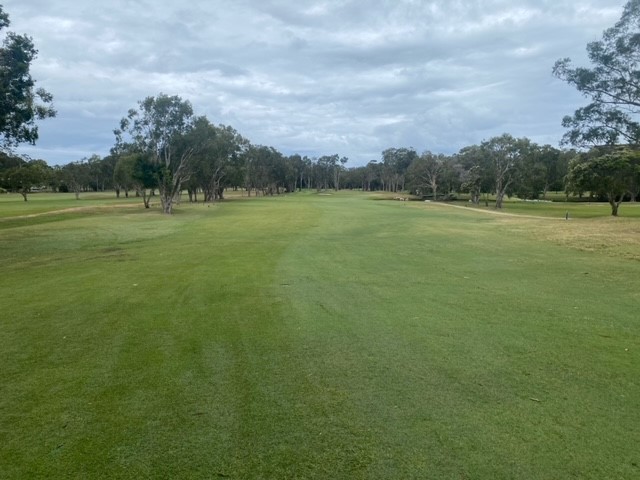Golf Course Turf
Challenges in turf management
Maintaining the pristine condition of a golf course can be a significant challenge. The environmental conditions, nutrient deficiencies, and soil pH issues are factors that every golf course superintendent like Todd McNamee must contend with.
Adoption of PyroAg Wood Vinegar
In their quest for better turf quality, Todd and his team decided to incorporate PyroAg Wood Vinegar into their maintenance program. It was a move that would help bring about sound changes in the golf course’s appearance and health.
Application and results
To ensure that PyroAg didn’t adversely affect the turf, they cautiously started with trials on a few fairways and tees. Todd recalls, “We initially trialled PyroAg on three fairways and two tees, applying it three times, one month apart. Our priority was ensuring it didn’t negatively impact our turf.”
Seeing no negative effects, they expanded their PyroAg application to cover all fairways and tees. It was a gradual process to ensure the best results.
Todd explains, “We integrated PyroAg into our fertiliser program without encountering any mixing issues. The rate of application remained consistent at 750mls per hectare.”
Their efforts with PyroAg didn’t go unnoticed. Todd mentions, “The benefits of Wood Vinegar were evident, enhancing the colour of our turf surfaces, and after 12 months of application, we noticed a significant reduction in our fertiliser needs.”
He adds, “PyroAg Wood Vinegar seemed to release stored nitrogen in the soil, making it more available to the plants.”
Water quality enhancement
The golf course faced a significant challenge with their water source. Todd explains, “Our golf course relies on effluent water, which contains high levels of bicarbonates. These bicarbonates are toxic to the roots and reduce shoot growth in the turf.”
Todd highlights a key benefit of PyroAg Wood Vinegar, stating, “PyroAg Wood Vinegar’s acid formulation seems to be a game-changer. It helped lower the pH and neutralise the bicarbonates in the water, improving overall plant health and colour.”
Sustainable approach
Despite the positive effects of PyroAg, they haven’t completely abandoned traditional NPK fertilisers. Todd emphasises, “The plants still require these essential elements.”
He points out, “What we appreciate about PyroAg Wood Vinegar is its compatibility with all fertilisers, and we’ve had no issues with tank mixing.
“Our journey with PyroAg Wood Vinegar has improved the quality of our turf. With its benefits in enhancing colour, reducing fertiliser dependency, and addressing water quality challenges, it has become an important part of our turf management strategy.”
Looking ahead, he says, “We look forward to exploring more opportunities to refine our turf management practices and further harness the potential of PyroAg Wood Vinegar.”
About PyroAg
School mates Chad Sheppeard and John Mellowes started PyroAg back in 2014. After researching pyrolysis, the process used to produce biochar, they discovered the many benefits of wood vinegar, which is a co-product of the biochar producing, pyrolysis process.
PyroAg Wood Vinegar, Biochar and a sustainable gas is produced by PyroAg at it’s Australian designed and built pyrolysis plant on the Mid North Coast of New South Wales. Being the first to produce and sell Wood Vinegar in Australia PyroAg have learnt many lessons about wood vinegar and what works for growers. PyroAg focus on producing a consistent product that growers can rely on.


